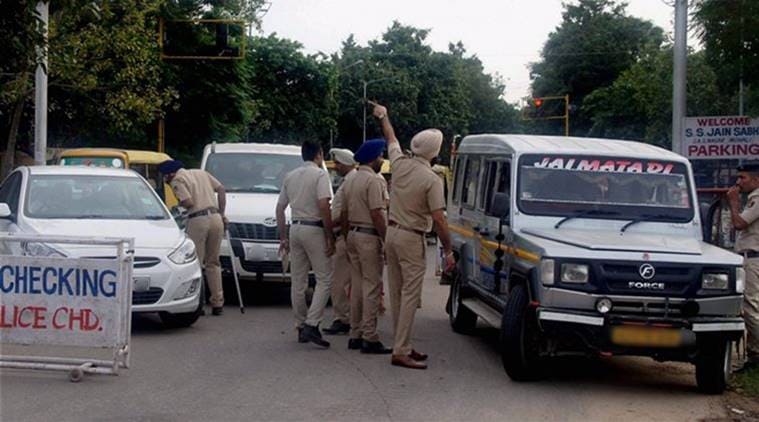
A retired high court judge’s comments on the Punjab Police’s approach to solving drugs cases drew a sharp reaction from a serving inspector general during a panel discussion at Panjab University Tuesday.
The discussion took place at the launch the Punjabi version of a report titled ‘From Addict to Convict: The Working of Narcotic Drugs and Psychotropic Substances (NDPS) Act in Punjab’ by the Vidhi Centre for Legal Policy, an independent think tank.
During the discussion, (retd) Justice Ranjit Singh spoke of a “similar pattern” in FIRs registered by police, false implications, and discrepancy in the quantity of drugs recovered and shown. “In most cases, police never tried to find out the source,” he said, adding that police personnel were rarely prosecuted in cases of false implication. The former judge also said that the police should focus on big players and suppliers.
When it was his turn to speak, Anti-drug STF Inspector General B Chandra Sekhar, one of the five panelists, said, “As far as police is concerned, in the criminal justice system, there are four components…It starts with the police, then the prosecution, the judiciary and the jails. Now it is a fashion in India to blame everything on police whereas the system goes from police upto the jails.”
He further said, “Ideally, a person should be working honestly and impartially, and this applies to all institutions of the government, not only police. If you want police to work honestly and impartially, they should not come under political influence. We must also realise that society has to first develop itself to make police like this. Police are a reflection of society…All of you must have read about the Parkash Singh judgment in Supreme Court. The court made a great effort to free the police from political interference. Has it really translated on ground? I don’t think so. I have seen outstanding police personnel who work honestly as per law, but there are constraints…”
“Coming back to NDPS Act. What is the touchstone of police efficiency? It is the conviction rate. In NDPS Act cases, the conviction rate has been very high,” the IG said. “There might be some false implications…police do not generate any kind of drugs…lower level officials could be doing something like this but there are very rare chances because they know there is a punishment and a stringent provision in the Act (for that),” he added.
“One big problem that we face is quantity recovered is not completely shown, like sir pointed out…There are black sheep…it is an exception. If things come to the notice of senior officers they take prompt action…There has been political interference in police work and it cannot be wished away because the constitutional framework is such that police is a state subject and postings, transfers are done by the political establishment. Who will bring (about) an ideal situation…the parliament has to do it….” said Sekhar.
He continued, “I would also like to point out that you must have read about one Inderjit Singh, an inspector in Punjab Police. The STF had registered a case against him. Some names had cropped up. The report was submitted in high court. After that nothing much happened. Then the high court itself directed the STF head to probe the links of one so-called big fish who was under inquiry by the Enforcement Directorate. The report was again submitted in high court…”